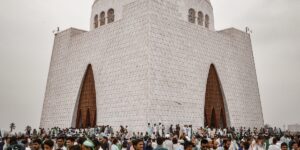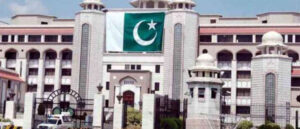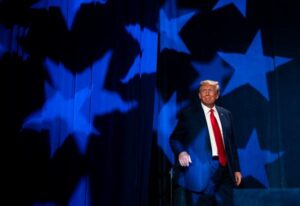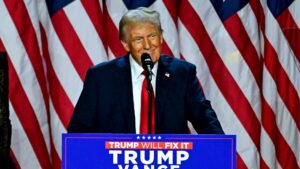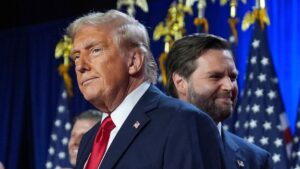Power of Propaganda: How Narratives Shape Pakistan’s Political Landscape
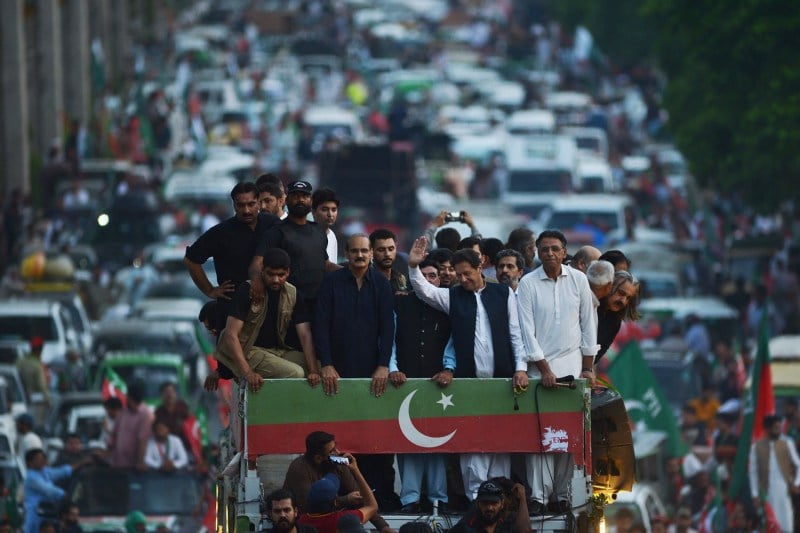
The current government, which came into existence following the February 2024 elections, has accomplished a lot in the past seven to eight months, surpassing expectations and its own capabilities. Few could have anticipated that the country’s dire state before the elections would stabilize so swiftly. Economic conditions were extremely bleak, with the country teetering on the edge of default.
Due to rising inflation and unemployment, the people had become deeply disillusioned. It seemed that the nation might not be able to preserve its sovereignty and survival. With no clear majority for any party, and given the deplorable state of affairs, no political party was willing to take on the government.
Most assumed that whichever party took on this burden would quickly fall out of favor with the people, suffering irreversible political damage. With the IMF’s reluctance to provide support, securing a loan was no simple task, and other countries were also hesitant to offer assistance. Under such circumstances, who would take on this burden? However, the Pakistan Muslim League-Nawaz (PML-N) chose to take on this daunting responsibility for the sake of the state, even when it didn’t want to. They demonstrated that they were the only party willing to sacrifice their political interests for the nation. Despite counsel from well-wishers advising them against taking on this challenge, PML-N moved forward with the resolve to rescue the country.
Those who had brought the country to such a state should have taken responsibility for its recovery. Why should it fall to PML-N alone to repair the devastation and destruction caused by others? Over the past seven years, the damage inflicted upon the nation was unprecedented, far exceeding the harm done in the preceding seventy years. If the plot against Pakistan’s progress in 2017 had not been orchestrated, we would have been in a far better position today. In their hostility towards Nawaz Sharif, they installed an inept leader into power, halting the electoral process with the RTS system shutdown. The outcome of this plot is now before us.
After the 2013 elections, covert efforts were made to undermine Nawaz Sharif’s government. A charismatic speaker was brought from Canada to rally support for Khan, staging a prolonged sit-in at D-Chowk, intending to paralyze the government machinery and force it out of power. Yet, despite these formidable challenges, the government managed to accomplish much within three to four years, including reviving the economy, tackling terrorism and routine bombings, resolving the electricity load-shedding crisis, and restoring peace to Karachi.
It’s worth remembering that Karachi, at the time, was in an appalling state. Daily target killings had become so commonplace that hearing news of fewer than a dozen murders in a day would have made one question their hearing. If any political party achieved substantial development projects after Ayub Khan’s government, it was undeniably PML-N. No other party has earned this distinction. They laid the groundwork for infrastructure across the country, building a network of beautiful highways, including the motorways.
The credit for fast-tracking the China-Pakistan Economic Corridor (CPEC) project also goes to this party. But, unfortunately, this progress was overshadowed by the propaganda wielded by its opponents. It’s often said that propaganda is the most powerful tool of our time. Lies, repeated with such conviction, soon appear to be the truth. Unable to defeat Nawaz Sharif based on his work, they launched a corruption campaign against him, which was so deceptive that it misled the younger generation, who were new to politics and unfamiliar with past politicians.
Young men and women were swept up in the charisma of a magnetic personality, becoming his ardent supporters and voters. This shift didn’t occur overnight; hidden forces were at play. Otherwise, how could it be that this same individual, who stumbled through the political landscape from 1996 to 2011 without significant support, suddenly became the hero of the younger generation in 2011?
Initially, when Khan entered politics, he advocated for clean and transparent politics, giving tickets only to those with unblemished reputations. But he never achieved more than a seat or two. This transformation began post-2011, when he was backed by the forces some perceive as hidden. With that support, he soared to new heights, reaching unprecedented levels of popularity. He had a knack for delivering speeches, and to this day, no one matches his oratory skills—not even within his own party. He excelled in propaganda politics, staging a 126-day sit-in at D-Chowk, where he continuously broadcast propaganda against his opponents, effects of which linger even today.
While he didn’t achieve any major accomplishments himself, he tainted the reputation of those who did, blurring the lines between right and wrong. People began to believe that if not all, then at least half of the propaganda must be true. He fueled suspicion around election fraud with baseless allegations of 35 punctures, which many accepted as fact. Similarly, he brought up the story of Form 47 in the 2024 elections.
Whenever he is asked for proof, he fails to provide any, yet continues to criticize, insisting that he will not engage with the “Form 47 government.” When he was in power, he also refused to engage with the opposition, claiming he couldn’t negotiate with corrupt individuals. Even if one were to accept that every politician but him is corrupt, the country still requires capable leaders, not incompetent ones. Honesty and integrity alone are insufficient; leaders must also have the ability to run the country. If running a nation required only good and honest people, then who could be better than Abdul Sattar Edhi?
The current government has shown that the one who accepts the responsibility of leading is not necessarily the one at fault for the country’s problems. They did so out of duty to the nation, even at the risk of political loss. They have taken on the arduous task of restoring Pakistan, which had been severely damaged due to policies and leadership from 2017 onwards. While propaganda against them was effective, it’s important to consider the facts beyond the rhetoric. Through consistent and pragmatic efforts, the government can continue to prove its commitment to Pakistan’s progress, rebuilding trust and dismantling the false narratives created by opponents.
In the face of relentless propaganda, the people have a responsibility to see through the fabrications. The government’s resolve is to restore stability and prosperity, undeterred by the smear campaigns aimed at undermining their efforts. The legacy of PML-N’s contributions remains strong, from CPEC to the restoration of Karachi, and their commitment to the nation’s welfare will persist despite attempts to distort reality with unfounded accusations.
In this age of information warfare, propaganda is indeed a powerful tool, but it cannot erase the tangible progress made by those who genuinely serve their country.

